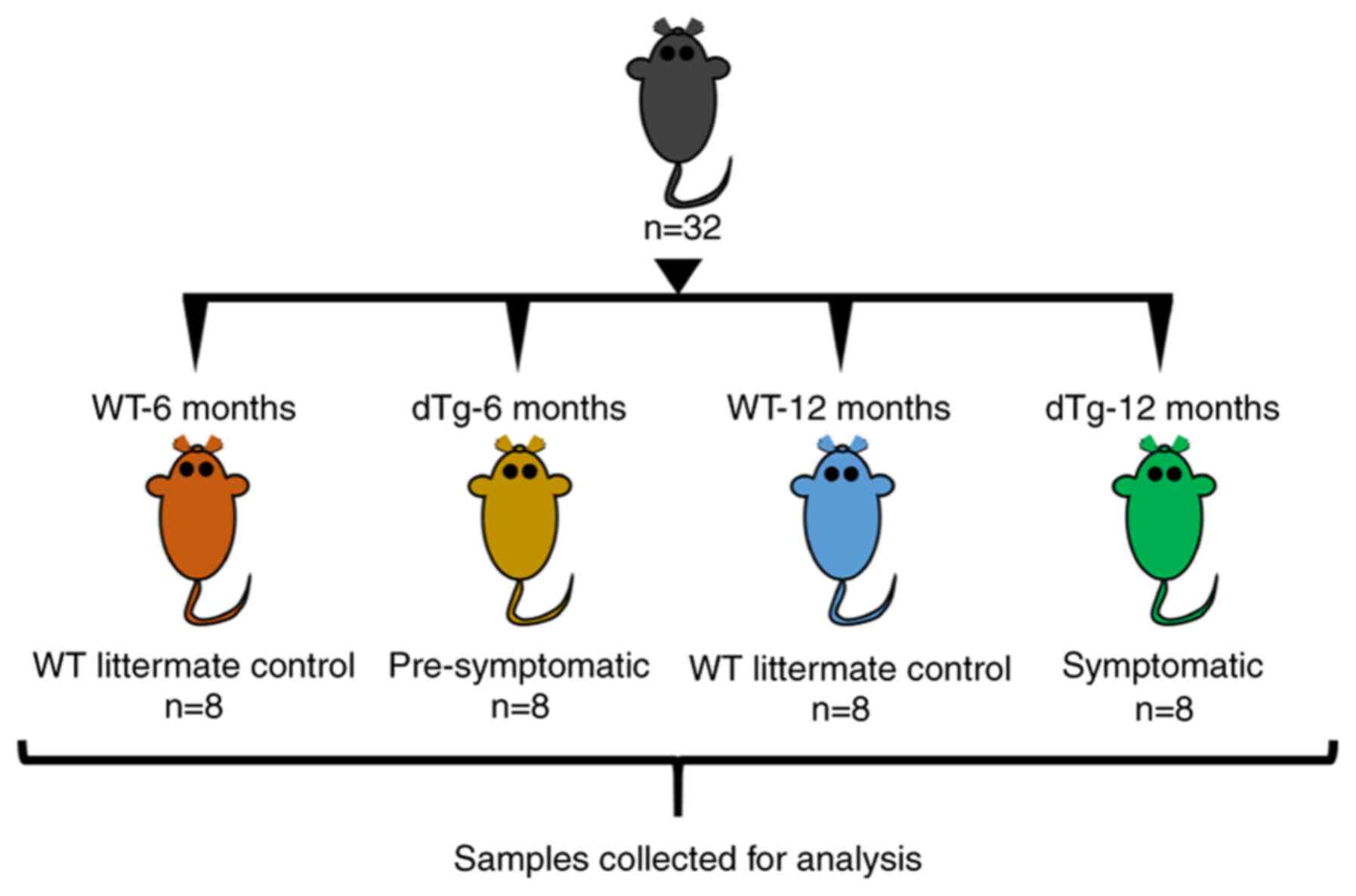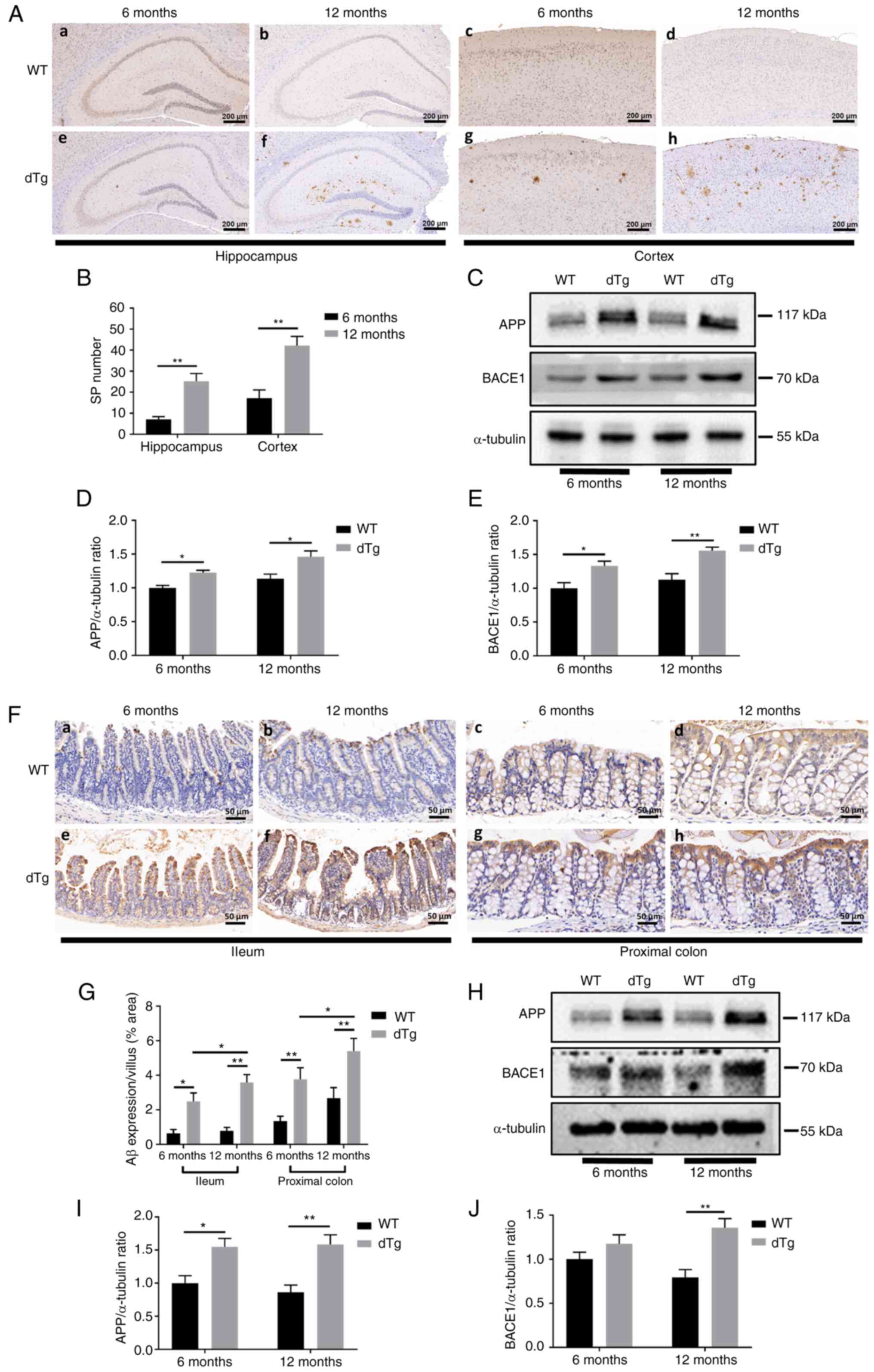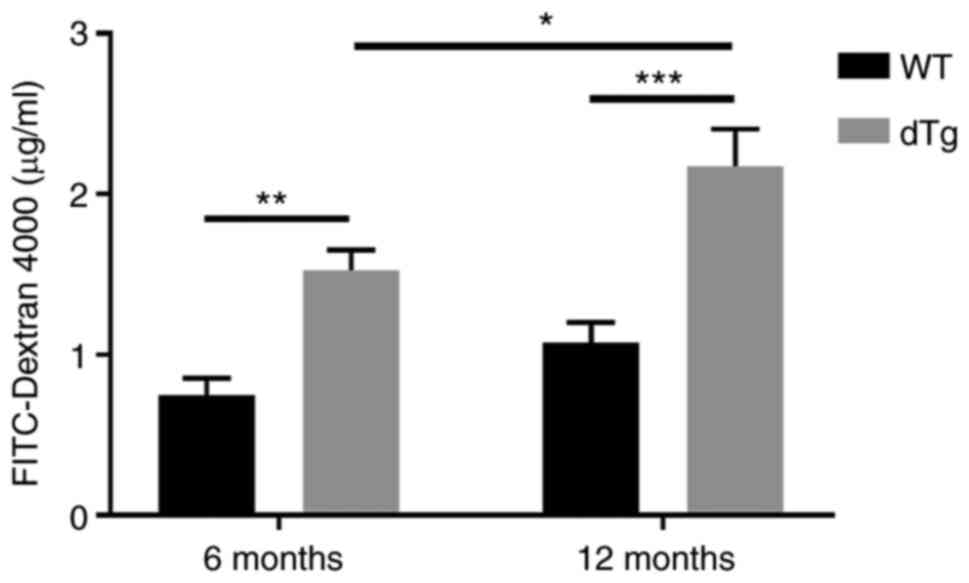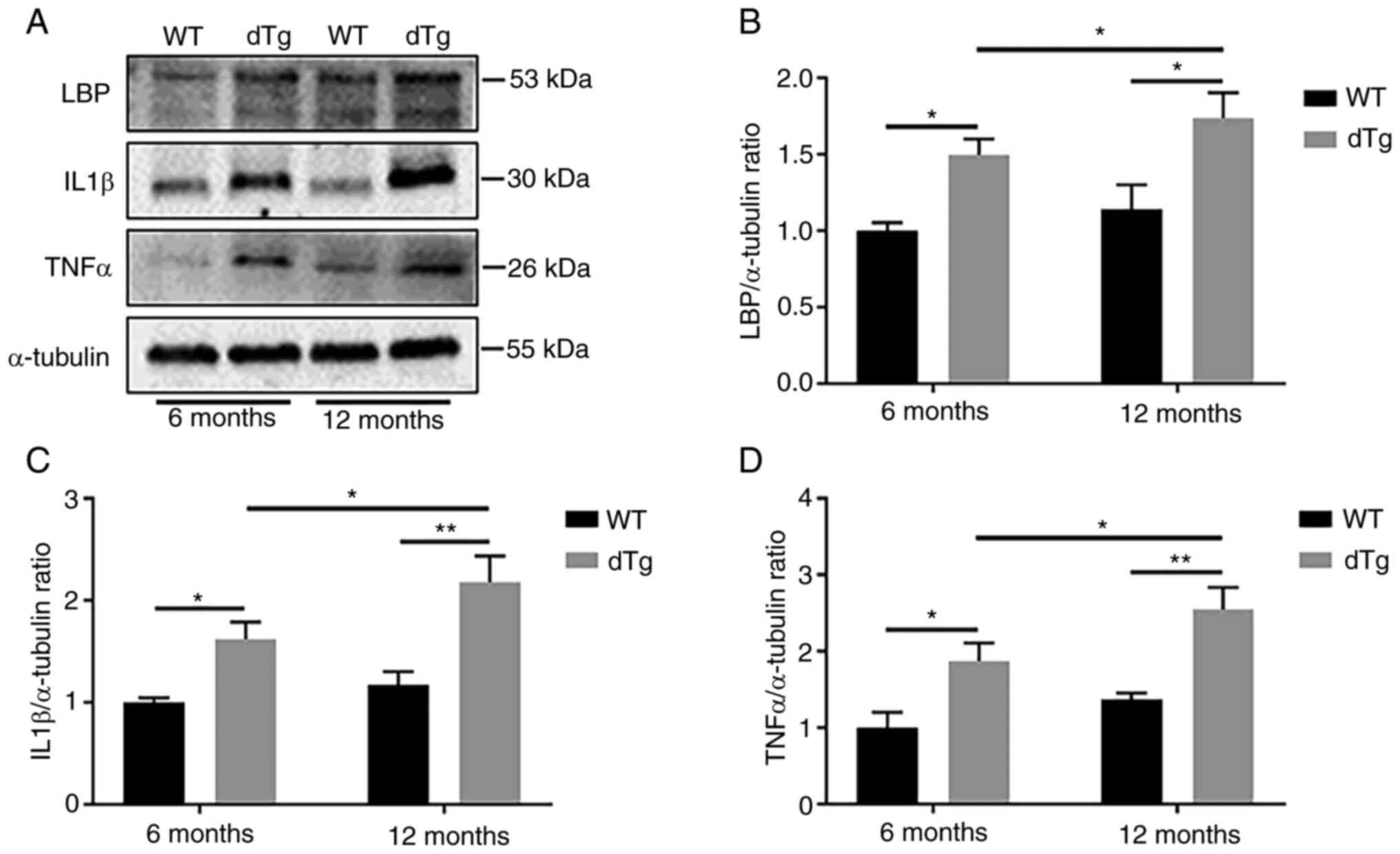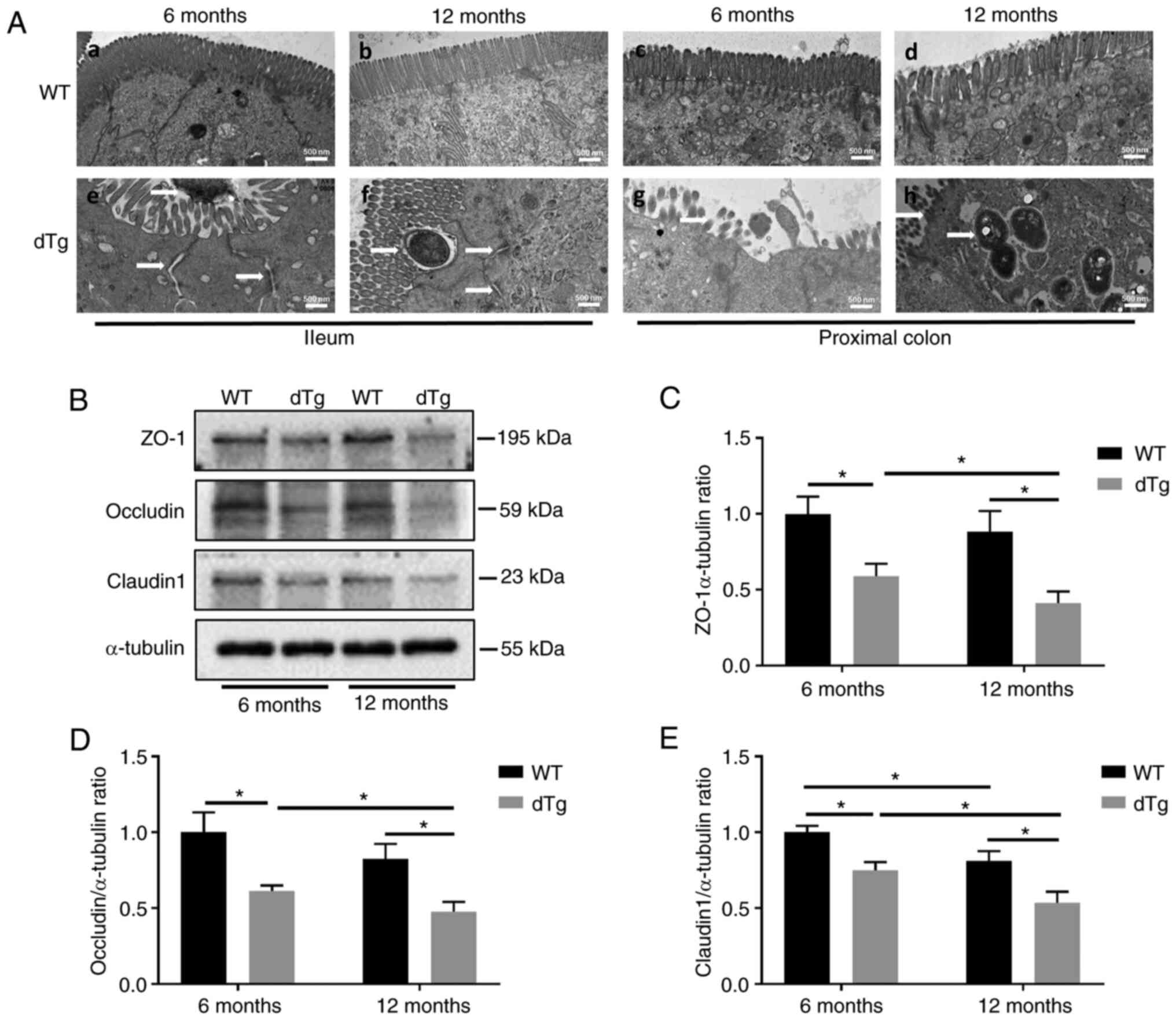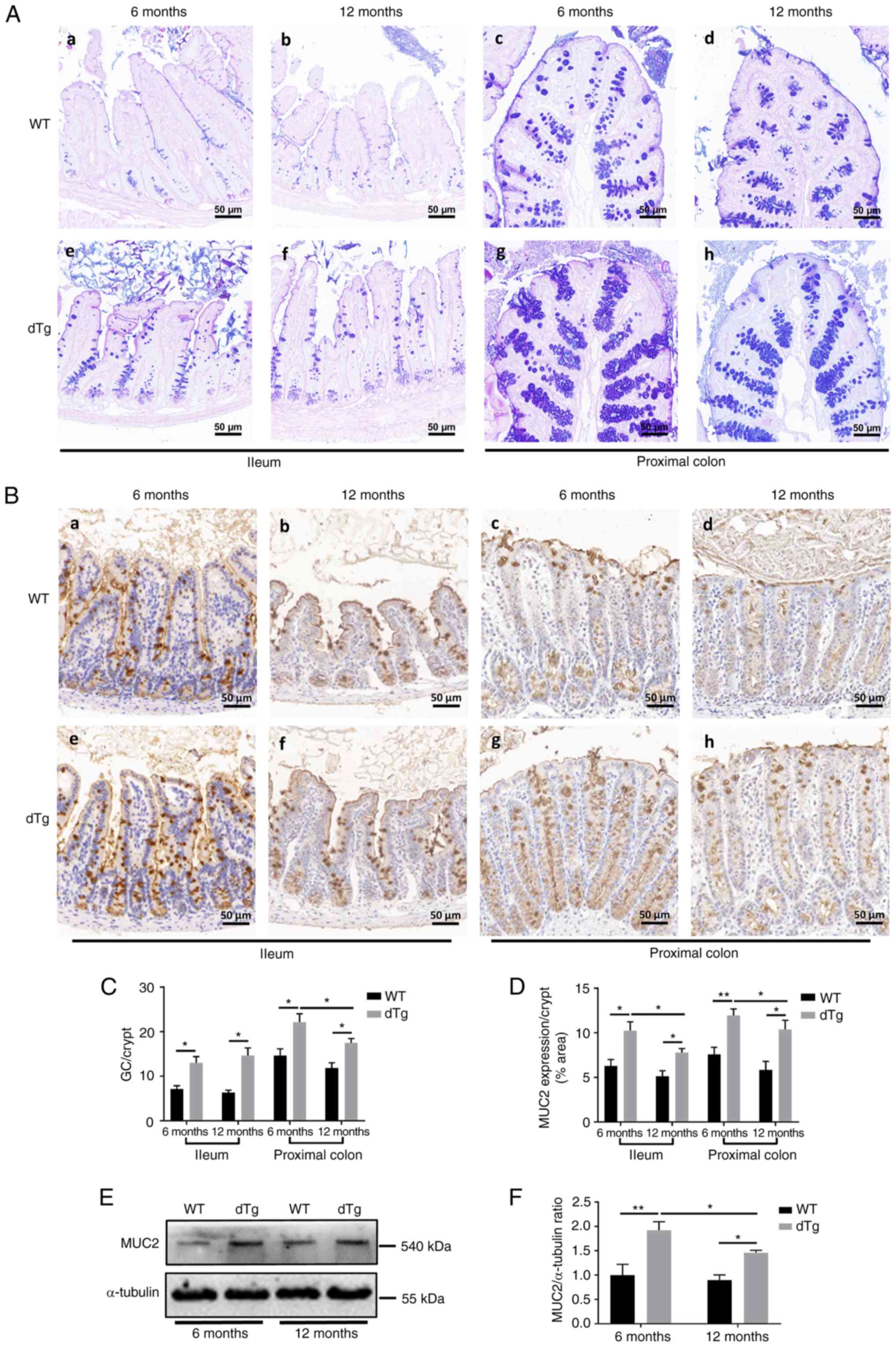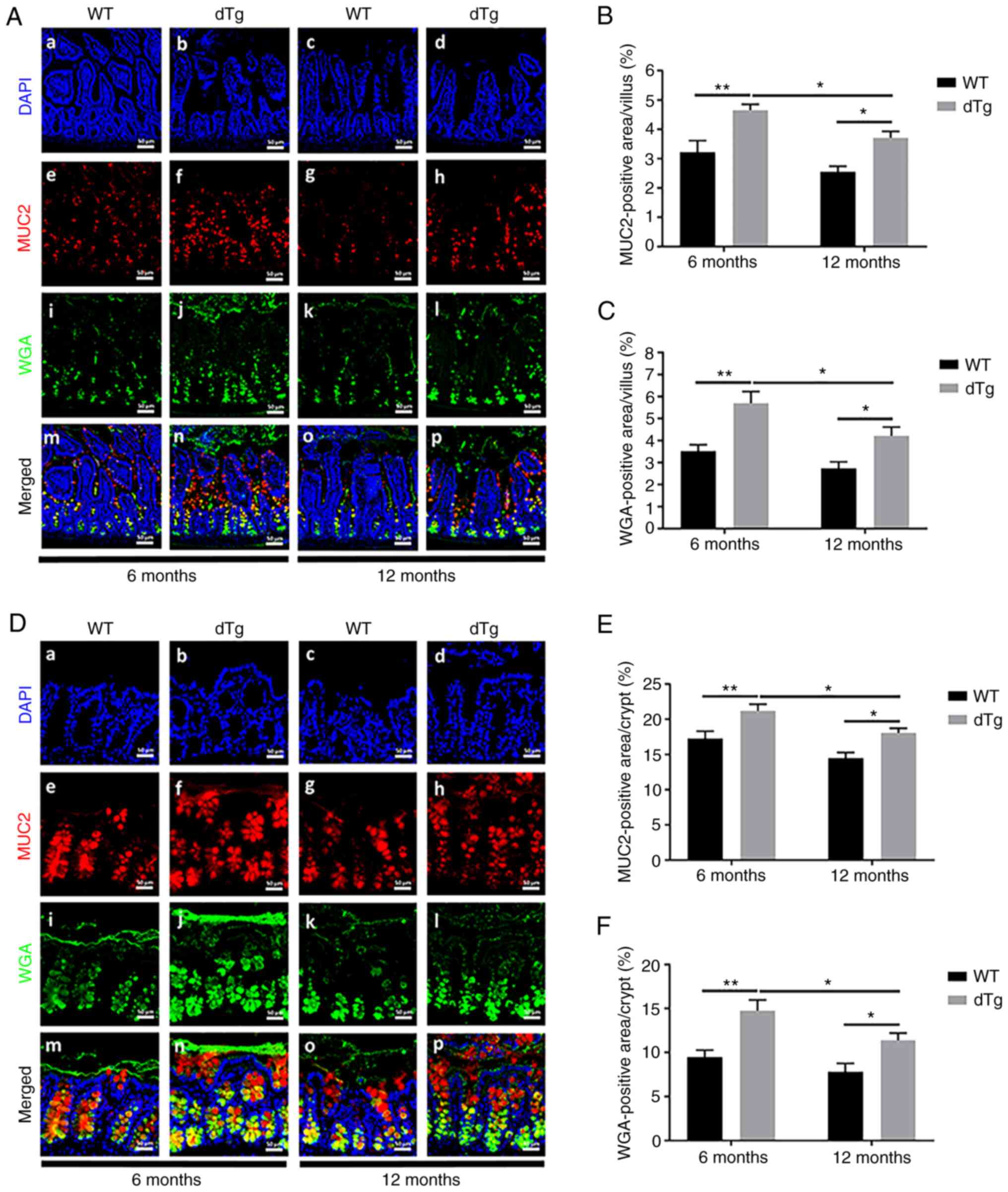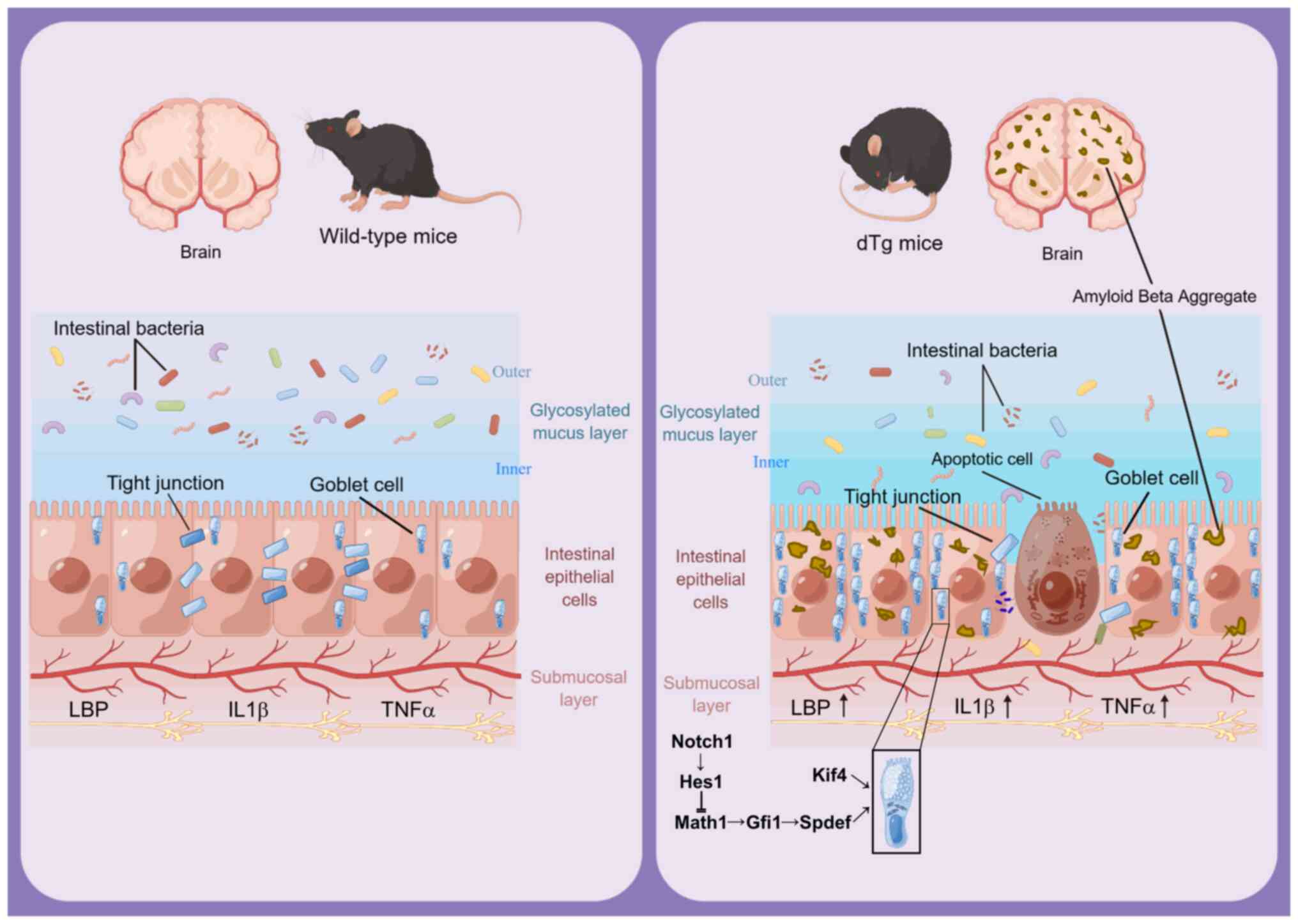|
1
|
Lane CA, Hardy J and Schott JM:
Alzheimer's disease. Eur J Neurol. 25:59–70. 2018. View Article : Google Scholar
|
|
2
|
Soria Lopez JA, Gonzalez HM and Leger GC:
Alzheimer's disease. Handb Clin Neurol. 167:231–55. 2019.
View Article : Google Scholar : PubMed/NCBI
|
|
3
|
Sun BL, Li WW, Zhu C, Jin WS, Zeng F, Liu
YH, Bu XL, Zhu J, Yao XQ and Wang YJ: Clinical Research on
Alzheimer's Disease: Progress and Perspectives. Neurosci Bull.
34:1111–1118. 2018. View Article : Google Scholar : PubMed/NCBI
|
|
4
|
Monteiro AR, Barbosa DJ, Remiao F and
Silva R: Alzheimer's disease: Insights and new prospects in disease
pathophysiology, biomarkers and disease-modifying drugs. Biochem
Pharmacol. 211:1155222023. View Article : Google Scholar : PubMed/NCBI
|
|
5
|
Cervellati C and Zuliani G: Frontier on
Alzheimer's Disease. Int J Mol Sci. 24:77482023. View Article : Google Scholar : PubMed/NCBI
|
|
6
|
Wood PL: Failure of current Alzheimer's
disease hypotheses. Aging (Albany NY). 15:5959–560. 2023.PubMed/NCBI
|
|
7
|
Jin J, Xu Z, Zhang L, Zhang C, Zhao X, Mao
Y, Zhang H, Liang X, Wu J, Yang Y and Zhang J: Gut-derived
β-amyloid: Likely a centerpiece of the gut-brain axis contributing
to Alzheimer's pathogenesis. Gut Microbes. 15:21671722023.
View Article : Google Scholar
|
|
8
|
Chen C, Zhou Y, Wang H, Alam A, Kang SS,
Ahn EH, Liu X, Jia J and Ye K: Gut inflammation triggers
C/EBPβ/δ-secretase-dependent gut-to-brain propagation of Aβ and Tau
fibrils in Alzheimer's disease. EMBO J. 40:e1063202021. View Article : Google Scholar
|
|
9
|
Wang D, Zhang X and Du H: Inflammatory
bowel disease: A potential pathogenic factor of Alzheimer's
disease. Prog Neuropsychopharmacol Biol Psychiatry. 119:1106102022.
View Article : Google Scholar : PubMed/NCBI
|
|
10
|
Eiser AR and Fulop T: Alzheimer's Disease
Is a Multi-Organ Disorder: It may already be preventable. J
Alzheimers Dis. 91:1277–1281. 2023. View Article : Google Scholar : PubMed/NCBI
|
|
11
|
MahmoudianDehkordi S, Arnold M, Nho K,
Ahmad S, Jia W, Xie G, Louie G, Kueider-Paisley A, Moseley MA,
Thompson JW, et al: Altered bile acid profile associates with
cognitive impairment in Alzheimer's disease-An emerging role for
gut microbiome. Alzheimers Dement. 15:76–92. 2019. View Article : Google Scholar
|
|
12
|
Dupont HL, Jiang ZD, Dupont AW and Utay
NS: The intestinal microbiome in human health and disease. Trans Am
Clin Climatol Assoc. 131:178–197. 2020.PubMed/NCBI
|
|
13
|
De la Fuente M: The Role of the
Microbiota-Gut-Brain axis in the health and illness condition: A
focus on Alzheimer's disease. J Alzheimers Dis. 81:1345–160. 2021.
View Article : Google Scholar : PubMed/NCBI
|
|
14
|
Kesika P, Suganthy N, Sivamaruthi BS and
Chaiyasut CL: Role of gut-brain axis, gut microbial composition,
and probiotic intervention in Alzheimer's disease. Life Sci.
264:1186272021. View Article : Google Scholar
|
|
15
|
Glinert A, Turjeman S, Elliott E and Koren
O: Microbes, metabolites and (synaptic) malleability, oh my! The
effect of the microbiome on synaptic plasticity. Biol Rev Camb
Philos Soc. 97:582–599. 2022. View Article : Google Scholar :
|
|
16
|
Nafady MH, Sayed ZS, Abdelkawy DA, Shebl
ME, Elsayed RA, Ashraf GM, Perveen A, Attia MS and Bahbah EI: The
effect of gut microbe dysbiosis on the pathogenesis of Alzheimer's
Disease (AD) and related conditions. Curr Alzheimer Res.
19:274–284. 2022. View Article : Google Scholar : PubMed/NCBI
|
|
17
|
Liu L, Yin M, Gao J, Yu C, Lin J, Wu A,
Zhu J, Xu C and Liu X: Intestinal barrier function in the
pathogenesis of nonalcoholic fatty liver disease. J Clin Transl
Hepatol. 11:452–458. 2023.PubMed/NCBI
|
|
18
|
Jia J, Zheng W, Zhang C, Zhang P, Guo X,
Song S and Ai C: Fucoidan from Scytosiphon lomentaria protects
against destruction of intestinal barrier, inflammation and lipid
abnormality by modulating the gut microbiota in dietary
fibers-deficient mice. Int J Biol Macromol. 224:556–567. 2023.
View Article : Google Scholar
|
|
19
|
Srugo SA, Bloise E, Nguyen TTN and Connor
KL: Impact of maternal malnutrition on gut barrier defense:
Implications for pregnancy health and fetal development. Nutrients.
11:13752019. View Article : Google Scholar : PubMed/NCBI
|
|
20
|
Neri I, Boschetti E, Follo MY, De Giorgio
R, Cocco LI, Manzoli L and Ratti S: Microbiota-Gut-Brain axis in
neurological disorders: From leaky barriers microanatomical changes
to biochemical processes. Mini Rev Med Chem. 23:307–319. 2023.
View Article : Google Scholar
|
|
21
|
El-Hakim Y, Bake S, Mani KK and Sohrabji
F: Impact of intestinal disorders on central and peripheral nervous
system diseases. Neurobiol Dis. 165:1056272022. View Article : Google Scholar : PubMed/NCBI
|
|
22
|
Oh E, Kang JH, Jo KW, Shin WS, Jeong YH,
Kang B, Rho TY, Jeon SY, Lee J, Song IS and Kim KT: Synthetic PPAR
Agonist DTMB Alleviates Alzheimer's disease pathology by inhibition
of chronic microglial inflammation in 5xFAD Mice.
Neurotherapeutics. 19:1546–1565. 2022. View Article : Google Scholar : PubMed/NCBI
|
|
23
|
Manocha GD, Floden AM, Miller NM, Smith
AJ, Nagamoto-Combs K, Saito T, Saido TC and Combs CK: Temporal
progression of Alzheimer's disease in brains and intestines of
transgenic mice. Neurobiol Aging. 81:166–176. 2019. View Article : Google Scholar : PubMed/NCBI
|
|
24
|
Puig KL, Lutz BM, Urquhart SA, Rebel AA,
Zhou X, Manocha GD, Sens M, Tuteja AK, Foster NL and Combs CK:
Overexpression of mutant amyloid-beta protein precursor and
presenilin 1 modulates enteric nervous system. J Alzheimers Dis.
44:1263–1278. 2015. View Article : Google Scholar
|
|
25
|
Niidome T, Taniuchi N, Akaike A, Kihara T
and Sugimoto H: Differential regulation of neurogenesis in two
neurogenic regions of APPswe/PS1dE9 transgenic mice. Neuroreport.
19:1361–1364. 2008. View Article : Google Scholar : PubMed/NCBI
|
|
26
|
National Research Council (US) Committee
for the Update of the Guide for the Care and Use of Laboratory
Animals: Guide for the Care and Use of Laboratory Animals. 8th
edition. National Academies Press (US); Washington, DC: 2011
|
|
27
|
Nakanishi T, Fukui H, Wang X, Nishiumi S,
Yokota H, Makizaki Y, Tanaka Y, Ohno H, Tomita T, Oshima T and Miwa
H: Effect of a High-Fat Diet on the Small-Intestinal environment
and mucosal integrity in the Gut-Liver axis. Cells. 10:31682021.
View Article : Google Scholar : PubMed/NCBI
|
|
28
|
Schroeder JA, Kuether EA, Fang J, Jing W,
Weiler H, Wilcox DA, Montgomery RR and Shi Q: Thromboelastometry
assessment of hemostatic properties in various murine models with
coagulopathy and the effect of factor VIII therapeutics. J Thromb
Haemost. 19:2417–2427. 2021. View Article : Google Scholar : PubMed/NCBI
|
|
29
|
Stacchiotti A, Ricci F, Rezzani R, Li
Volti G, Borsani E, Lavazza A, Bianchi R and Rodella LF: Tubular
stress proteins and nitric oxide synthase expression in rat kidney
exposed to mercuric chloride and melatonin. J Histochem Cytochem.
54:1149–1157. 2006. View Article : Google Scholar : PubMed/NCBI
|
|
30
|
Phillippi DT, Daniel S, Nguyen KN,
Penaredondo BA and Lund AK: Probiotics function as immunomodulators
in the intestine in C57Bl/6 male mice exposed to inhaled diesel
exhaust particles on a High-Fat diet. Cells. 11:14452022.
View Article : Google Scholar : PubMed/NCBI
|
|
31
|
Tizro P, Choi C and Khanlou N: Sample
preparation for transmission electron microscopy. Methods Mol Biol.
1897:417–424. 2019. View Article : Google Scholar
|
|
32
|
Yan JT, Liu XY, Liu JH, Li GW, Zheng LF,
Zhang XL, Zhang Y, Feng XY and Zhu JX: Reduced acetylcholine and
elevated muscarinic receptor 2 in duodenal mucosa contribute to the
impairment of mucus secretion in 6-hydroxydopamine-induced
Parkinson's disease rats. Cell Tissue Res. 386:249–260. 2021.
View Article : Google Scholar : PubMed/NCBI
|
|
33
|
Livak KJ and Schmittgen TD: Analysis of
relative gene expression data using real-time quantitative PCR and
the 2(-Delta Delta C(T)) method. Methods. 25:402–408. 2001.
View Article : Google Scholar
|
|
34
|
Szymanska E, Szymanska S, Dadalski M and
Kierkus J: Biological markers of disease activity in inflammatory
bowel diseases. Prz Gastroenterol. 18:141–147. 2023.PubMed/NCBI
|
|
35
|
Gurram PC, Manandhar S, Satarker S, Mudgal
J, Arora D and Nampoothiri M: Dopaminergic signaling as a plausible
modulator of astrocytic toll-like receptor 4: A crosstalk between
neuroinflammation and cognition. CNS Neurol Disord Drug Targets.
22:539–557. 2023. View Article : Google Scholar
|
|
36
|
Dinarello CA: Interleukin-1 in the
pathogenesis and treatment of inflammatory diseases. Blood.
117:3720–3732. 2011. View Article : Google Scholar : PubMed/NCBI
|
|
37
|
Brenner D, Blaser H and Mak TW: Regulation
of tumour necrosis factor signalling: Live or let die. Nat Rev
Immunol. 15:362–374. 2015. View Article : Google Scholar : PubMed/NCBI
|
|
38
|
Grosheva I, Zheng D, Levy M, Polansky O,
Lichtenstein A, Golani O, Dori-Bachash M, Moresi C, Shapiro H, Del
Mare-Roumani S, et al: High-Throughput screen identifies host and
microbiota regulators of intestinal barrier function.
Gastroenterology. 159:1807–1823. 2020. View Article : Google Scholar : PubMed/NCBI
|
|
39
|
Melhem H, Regan-Komito D and Niess JH:
Mucins dynamics in physiological and pathological conditions. Int J
Mol Sci. 22:136422021. View Article : Google Scholar : PubMed/NCBI
|
|
40
|
Okamoto R, Tsuchiya K, Nemoto Y, Akiyama
J, Nakamura T, Kanai T and Watanabe M: Requirement of Notch
activation during regeneration of the intestinal epithelia. Am J
Physiol Gastrointest Liver Physiol. 296:G23–G35. 2009. View Article : Google Scholar
|
|
41
|
Jankowsky JL, Slunt HH, Ratovitski T,
Jenkins NA, Copeland NG and Borchelt DR: Co-expression of multiple
transgenes in mouse CNS: A comparison of strategies. Biomol Eng.
17:157–165. 2001. View Article : Google Scholar : PubMed/NCBI
|
|
42
|
Garcia-Alloza M, Robbins EM, Zhang-Nunes
SX, Purcell SM, Betensky RA, Raju S, Prada C, Greenberg SM, Bacskai
BJ and Frosch MP: Characterization of amyloid deposition in the
APPswe/PS1dE9 mouse model of Alzheimer disease. Neurobiol Dis.
24:516–524. 2006. View Article : Google Scholar : PubMed/NCBI
|
|
43
|
Duyckaerts C, Potier MC and Delatour B:
Alzheimer disease models and human neuropathology: Similarities and
differences. Acta Neuropathol. 115:5–38. 2008. View Article : Google Scholar
|
|
44
|
Turner JR: Intestinal mucosal barrier
function in health and disease. Nat Rev Immunol. 9:799–809. 2009.
View Article : Google Scholar : PubMed/NCBI
|
|
45
|
Choonara BF, Choonara YE, Kumar P,
Bijukumar D, du Toit LC and Pillay V: A review of advanced oral
drug delivery technologies facilitating the protection and
absorption of protein and peptide molecules. Biotechnol Adv.
32:1269–1282. 2014. View Article : Google Scholar : PubMed/NCBI
|
|
46
|
Groschwitz KR and Hogan SP: Intestinal
barrier function: Molecular regulation and disease pathogenesis. J
Allergy Clin Immunol. 124:3–20. 2009. View Article : Google Scholar : PubMed/NCBI
|
|
47
|
Odenwald MA and Turner JR: The intestinal
epithelial barrier: A therapeutic target? Nat Rev Gastroenterol
Hepatol. 14:9–21. 2017. View Article : Google Scholar :
|
|
48
|
Camilleri M: Leaky gut: Mechanisms,
measurement and clinical implications in humans. Gut. 68:1516–1526.
2019. View Article : Google Scholar : PubMed/NCBI
|
|
49
|
Pellegrini C, Ippolito C, Segnani C, Dolfi
A, Errede M, Virgintino D, Fornai M, Antonioli L, Garelli F,
Nericcio A, et al: Pathological remodelling of colonic wall
following dopaminergic nigrostriatal neurodegeneration. Neurobiol
Dis. 139:1048212020. View Article : Google Scholar : PubMed/NCBI
|
|
50
|
Nighot P and Ma T: Endocytosis of
intestinal tight junction proteins: In Time and Space. Inflamm
Bowel Dis. 27:283–290. 2021. View Article : Google Scholar :
|
|
51
|
Szczepanik AM, Rampe D and Ringheim GE:
Amyloid-beta peptide fragments p3 and p4 induce pro-inflammatory
cytokine and chemokine production in vitro and in vivo. J
Neurochem. 77:304–317. 2001.PubMed/NCBI
|
|
52
|
Zhou WW, Lu S, Su YJ, Xue D, Yu XL, Wang
SW, Zhang H, Xu PX, Xie XX and Liu RT: Decreasing oxidative stress
and neuroinflammation with a multifunctional peptide rescues memory
deficits in mice with Alzheimer disease. Free Radic Biol Med.
74:50–63. 2014. View Article : Google Scholar : PubMed/NCBI
|
|
53
|
Fan Q, Liu Y, Wang X, Zhang Z, Fu Y, Liu
L, Wang P, Ma H, Ma H, Seeram NP, et al: Ginnalin a inhibits
aggregation, reverses fibrillogenesis, and alleviates cytotoxicity
of amyloid β(1-42). ACS Chem Neurosci. 11:638–647. 2020. View Article : Google Scholar : PubMed/NCBI
|
|
54
|
Conway KL, Kuballa P, Song JH, Patel KK,
Castoreno AB, Yilmaz OH, Jijon HB, Zhang M, Aldrich LN, Villablanca
EJ, et al: Atg16l1 is required for autophagy in intestinal
epithelial cells and protection of mice from Salmonella infection.
Gastroenterology. 145:1347–1357. 2013. View Article : Google Scholar : PubMed/NCBI
|
|
55
|
Weiss GA, Grabinger T, Glaus Garzon J,
Hasler T, Greppi A, Lacroix C, Khanzhin N and Hennet T: Intestinal
inflammation alters mucosal carbohydrate foraging and
monosaccharide incorporation into microbial glycans. Cell
Microbiol. 23:e132692021. View Article : Google Scholar
|
|
56
|
De Gregorio V, Imparato G, Urciuolo F and
Netti PA: Micro-patterned endogenous stroma equivalent induces
polarized crypt-villus architecture of human small intestinal
epithelium. Acta Biomater. 81:43–59. 2018. View Article : Google Scholar : PubMed/NCBI
|
|
57
|
McCaffrey C, Corrigan A, Moynagh P and
Murphy R: Effect of yeast cell wall supplementation on intestinal
integrity, digestive enzyme activity and immune traits of broilers.
Br Poult Sci. 62:771–782. 2021. View Article : Google Scholar : PubMed/NCBI
|
|
58
|
Escande F, Porchet N, Bernigaud A,
Petitprez D, Aubert JP and Buisine MP: The mouse secreted
gel-forming mucin gene cluster. Biochim Biophys Acta. 1676:240–250.
2004. View Article : Google Scholar : PubMed/NCBI
|
|
59
|
Luis AS and Hansson GC: Intestinal mucus
and their glycans: A habitat for thriving microbiota. Cell Host
Microbe. 31:1087–100. 2023. View Article : Google Scholar : PubMed/NCBI
|
|
60
|
Muthupalani S, Ge Z, Joy J, Feng Y, Dobey
C, Cho HY, Langenbach R, Wang TC, Hagen SJ and Fox JG: Muc5ac null
mice are predisposed to spontaneous gastric antro-pyloric
hyperplasia and adenomas coupled with attenuated H. pylori-induced
corpus mucous metaplasia. Lab Invest. 99:1887–1905. 2019.
View Article : Google Scholar : PubMed/NCBI
|
|
61
|
Higuchi R, Song C, Hoshina R and Suzaki T:
Endosymbiosis-related changes in ultrastructure and chemical
composition of Chlorella variabilis (Archaeplastida, Chlorophyta)
cell wall in Paramecium bursaria (Ciliophora, Oligohymenophorea).
Eur J Protistol. 66:149–155. 2018. View Article : Google Scholar : PubMed/NCBI
|
|
62
|
Papaspyropoulos A, Angelopoulou A,
Mourkioti I, Polyzou A, Pankova D, Toskas K, Lanfredini S,
Pantazaki AA, Lagopati N, Kotsinas A, et al: RASSF1A disrupts the
NOTCH signaling axis via SNURF/RNF4-mediated ubiquitination of
HES1. EMBO Rep. 23:e512872022. View Article : Google Scholar
|
|
63
|
Yagishita Y, Joshi T, Kensler TW and
Wakabayashi N: Transcriptional Regulation of Math1 by Aryl
Hydrocarbon Receptor: Effect on Math1+ Progenitor Cells in Mouse
Small Intestine. Mol Cell Biol. 43:43–63. 2023. View Article : Google Scholar : PubMed/NCBI
|
|
64
|
Kim YS and Ho SB: Intestinal goblet cells
and mucins in health and disease: Recent insights and progress.
Curr Gastroenterol Rep. 12:319–330. 2010. View Article : Google Scholar : PubMed/NCBI
|
|
65
|
Shinoda M, Shin-Ya M, Naito Y, Kishida T,
Ito R, Suzuki N, Yasuda H, Sakagami J, Imanishi J, Kataoka K, et
al: Early-stage blocking of Notch signaling inhibits the depletion
of goblet cells in dextran sodium sulfate-induced colitis in mice.
J Gastroenterol. 45:608–617. 2010. View Article : Google Scholar : PubMed/NCBI
|
|
66
|
van der Flier LG and Clevers H: Stem
cells, self-renewal, and differentiation in the intestinal
epithelium. Annu Rev Physiol. 71:241–260. 2009. View Article : Google Scholar
|
|
67
|
Wu H, Chen QY, Wang WZ, Chu S, Liu XX, Liu
YJ, Tan C, Zhu F, Deng SJ, Dong YL, et al: Compound sophorae
decoction enhances intestinal barrier function of dextran sodium
sulfate induced colitis via regulating notch signaling pathway in
mice. Biomed Pharmacother. 133:1109372021. View Article : Google Scholar
|
|
68
|
Pope JL, Ahmad R, Bhat AA, Washington MK,
Singh AB and Dhawan P: Claudin-1 overexpression in intestinal
epithelial cells enhances susceptibility to adenamatous polyposis
coli-mediated colon tumorigenesis. Mol Cancer. 13:1672014.
View Article : Google Scholar : PubMed/NCBI
|
|
69
|
Pope JL, Bhat AA, Sharma A, Ahmad R,
Krishnan M, Washington MK, Beauchamp RD, Singh AB and Dhawan P:
Claudin-1 regulates intestinal epithelial homeostasis through the
modulation of Notch-signalling. Gut. 63:622–634. 2014. View Article : Google Scholar
|
|
70
|
Battagin AS, Bertuzzo CS, Carvalho PO,
Ortega MM and Marson FAL: Single nucleotide variants c.-13G → C
(rs17429833) and c.108C → T (rs72466472) in the CLDN1 gene and
increased risk for familial colorectal cancer. Gene.
768:1453042021. View Article : Google Scholar
|















